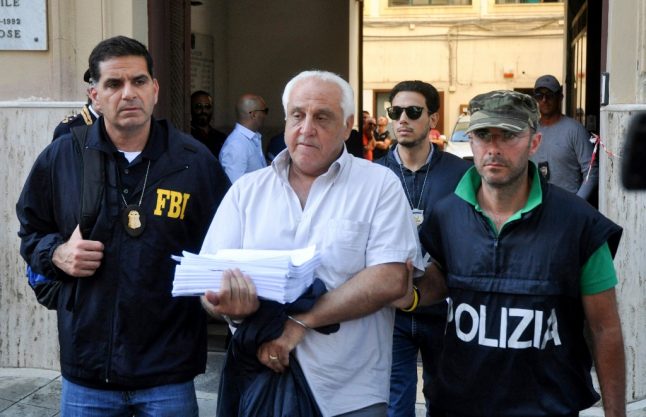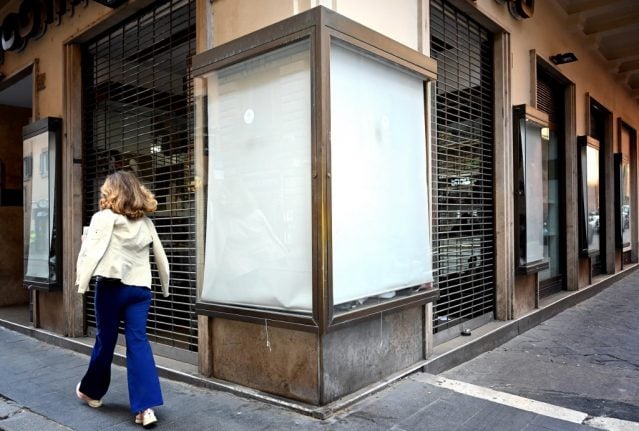Raids in both countries targeted links between the Sicilian Mafia — known as the Cosa Nostra — and US organised crime, said an Italian police statement.
Italian police said 18 people had been arrested in Italy and one in the United States.
Among those arrested was Thomas Gambino, considered by the FBI to be a key player. Police also cuffed members of the Inzerillo family, said Italian prosecutor Roberto Tartaglia.
During their investigation, they said, they secretly filmed Gambino holding a covert meeting with the head of the Inzerillo family on a rubber dinghy off the coast of Palermo last summer.
The Inzerillo crime family has been trying to rebuild after the 2017 death of its enemy, Boss of Bosses Salvatore “Toto” Riina, police said.
The investigation, dubbed “New Connection” by the Italian police, revealed “the strong bond established between Cosa Nostra in Palermo and US organized crime,” it said.
Investigators focussed in particular on the Gambino crime family in New York.
Riina — nicknamed “The Beast” because of his cruelty — was one of the most feared Godfathers in the history of the Sicilian Mafia.
His Mafia war in the 1980s forced the Inzerillo family to flee to the United States, police said in a statement.
Riina tried to wipe out the clan by ordering a hit on its head, Salvatore Inzerillo, who was gunned down as he left his lover's house in 1981.
But Riina's death behind bars two years ago created a power vaccuum.
This was a chance for the Inzerillo family to attempt to reclaim its old territory, with the help of allies in New York, said police.
“Those Riina wanted dead were creating a special link between Palermo and New York,” said prosecutor Tartaglia.
'The runaways'
Those arrested, dubbed “the runaways” by police, face charges including membership of the mafia and aggravated extortion.
“They were the losers who ran away so they wouldn't be killed by the Corleonesi (under Riina),” said Palermo police commissioner Renato Cortese.
“They continue to be losers.”
The Cosa Nostra's most highest-profile killings were the 1992 murders of anti-mafia judges Giovanni Falcone and Paolo Borsellino, who had worked to bring more than 300 mobsters to trial in 1987.
Police said Wednesday's arrests were a fitting way to mark the 27th anniversary of Borsellino's death, which falls on Friday.
Italian newspapers revelled in the story.
“The Godfather returns”, was the headline in the daily La Repubblica.
“In Palermo, it's three am, and muggy. In New York, it's 9pm on an evening that looks like rain,” the paper wrote.
“A WhatsApp message is sent. It's the sign the police and their FBI colleagues have been waiting for.
“Off they go, through the streets of Passo di Rigano, Boccadifalco, Torretta and at the same time, Brooklyn, Staten Island, New Jersey. Because from Sicily to the US, the old Mafia has returned,” it said.




 Please whitelist us to continue reading.
Please whitelist us to continue reading.
Member comments